Former Minister of Finance El Badawi: The Quartet is a historic opportunity if the civilians seize it – any military settlement will reproduce the Sudan crisis
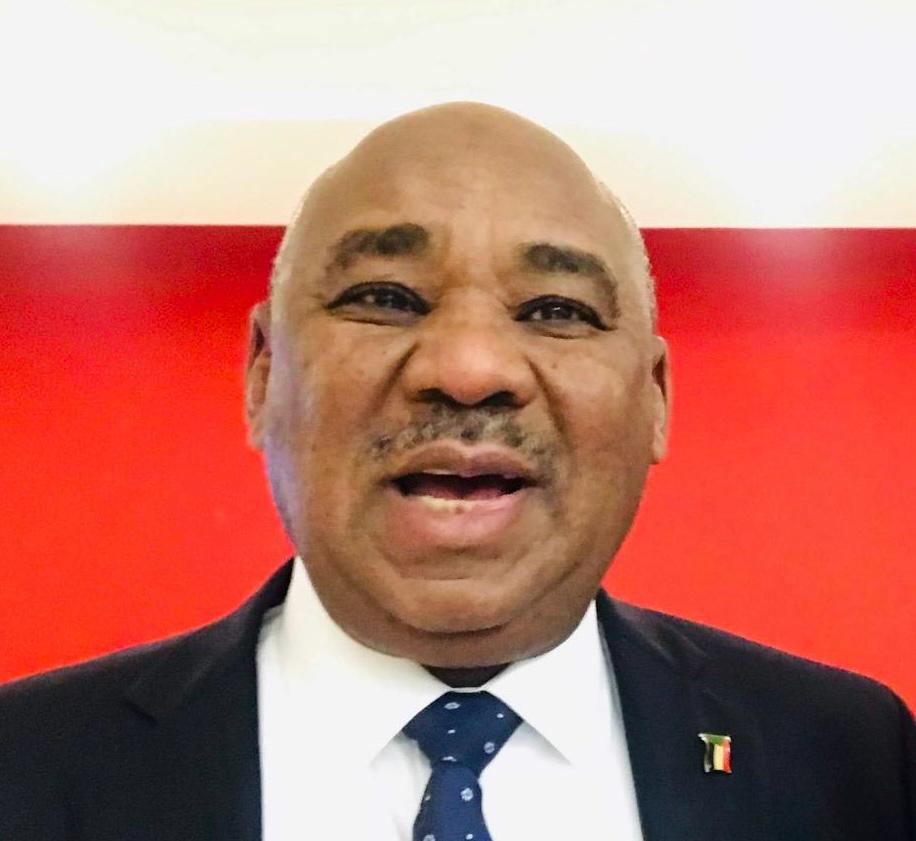
Academic, economist and former Minister of Finance Dr Ibrahim El Badawi (Photo: Radio Dabanga)
Economist and former Minister of Finance of Sudan, Dr Ibrahim El Badawi: $200 billion in devastating losses of war for Sudan’s infrastructure; 40 per cent of GDP, destroyed in the first year of the war; $6 billion in losses in the capital Khartoum and its environs.
“The incompatibility of the city forces will push the quartet for easy solutions, by reformulating the duality of El Burhan and Hemedti. The only way out of Sudan’s existential crisis is the agreement of civil forces on a comprehensive national charter Four possible scenarios for Sudan’s future, the worst of which is the continuation of the war, fragmentation, and the carving out of its territories from neighbouring countries.”
Amid the rubble of the war, which is entering its third year, Sudan stands at a critical crossroads: either a new national project will be born that will lead to a genuine democratic civil transition, or the crisis itself will be reproduced in a different garb that recycles the military elites. These scenarios appear in light of the recent moves of the countries of the Quartet that seek to stop the war in the country. This raises questions about the chances of getting out of the tunnel of violence and returning to the path of democratic transition.
In an extensive interview with academic, economist ,and former Minister of Finance of Sudan, Dr Ibrahim El Badawi with the programme Plain Speaking on Radio Dabanga, he outlines the features of the near future with unusual boldness: “ There is no winner in this war, and any solution that is not based on an inclusive charter, security reform, and transitional justice will only be a postponement of a more severe crisis.”
El Badawi calls on the civil forces to capture a rare historical moment, warning that their inaction will open the door to the easiest solution by restoring the duality of Burhan and Hemedti, which means the continuation of the militarisation of the state and the confiscation of the Sudanese people’s dreams of a civil democratic transition and the realisation of renaissance in the country. El Badawi presents a comprehensive vision on the paths to ending the ongoing war and the extent that Sudan has reached from a terrible deterioration in its economy, which needs years of hard work in the event that the war stops to bring it back to the point it was in 2023, the date of the outbreak of the war against Sudanese civilians, stressing that the current crisis can only be overcome through an inclusive national project around which the Sudanese rally and finds support from international initiatives such as the Quartet Initiative and the United Nations.
The tearing of the social fabric and the complete collapse of the state’s structures
In an interview with Radio Dabanga, El Badawi warns of the devastating economic and social repercussions of the ongoing war in Sudan, stressing that it is one of the most dangerous civil wars that the country and modern Africa have witnessed, not only in terms of material losses, but also in terms of the tearing up of the social fabric and the comprehensive collapse of the state’s foundations.
El Badawi says that all the impartial and objective security experts who analyse indicate that it is very difficult for either side to achieve a decisive victory over the other, as a result of the sharp geographical and societal division in Sudan. In this regard, he explains that there is no victory or victor in this war (but there is a mutual weakness, both for the society and for the State).
He explains that what distinguishes this war from its predecessors is that it broke out between two armies within the borders of one country. “Both armies and their allied proxies possess lethal weapons with high destructive capabilities that are not typically used in ordinary traditional civil conflicts, such as drones, tanks, rockets, rockets, and heavy artillery,” he says.
He explains that the danger of this war is not limited to the nature of the weapons, but also their location, as it broke out in the economic and political centre of the country, the capital, Khartoum, unlike previous civil wars such as the Darfur war and the southern war, which took place in areas that can be classified as relatively remote.
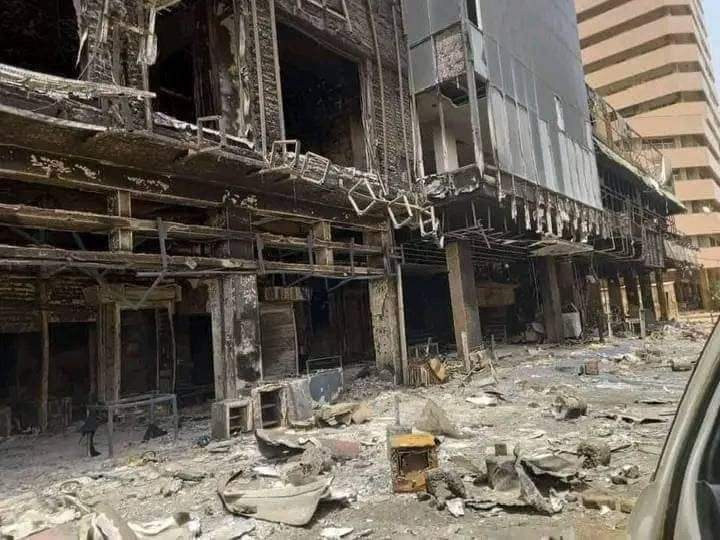
estimated the losses at more than $9 billion – Source: Social Media
Comprehensive economic destruction
Regarding the economic impact of the current war, he explains that it is far greater than what the country has witnessed in its previous conflicts, and says that preliminary estimates show the extent of the massive destruction in the country’s “capital balance”, which is defined as constituting infrastructure, buildings, roads, airports, bridges, and other material assets, which constitute the capital stock of the economy.
El Badawi: According to 2018 estimates, Sudan’s capital balance is about $600 billion. He stresses that Sudan (in the first year of the war in 2023, lost (20%) of this balance, equivalent to (30) billion dollars. About 40 per cent of GDP was destroyed in the first year of the war, according to the African Development Bank’s estimates.
He adds that according to estimates of the long-term growth model, a research study he prepared with a colleague, if this war continues for another five months, the losses could rise to $160 billion, equivalent to five times Sudan’s GDP before the outbreak of the war on April 15, 2023.
He explains that the direct losses to the infrastructure in and around the capital, Khartoum, including the Geely Petroleum Refinery, amount to $6 billion, and possibly more.
The biggest loss in education
He stresses that Sudan has suffered heavy losses due to this war, ranging from 20 to 30% of infrastructure, equivalent to about $200 billion. “Some 50 million Sudanese will need to work for five consecutive years just to cover this $160 billion gap,” he says, adding, “They will also need to work, for a full 11 years, to restore the situation to the pre-war level.” He stresses that the scale of these losses makes recovery a very difficult task. He says that the biggest loss occurred – not only in the destruction of infrastructure or material assets – but also in the collapse of education in Sudan, pointing out in this regard, that there are more than 16 million children in Sudan, out of education, according to UNICEF estimates, which means that three quarters of school-age children were unable to enrol in school by the beginning of the new year. More than 3 million children under the age of five are expected to suffer from acute malnutrition in 2025, along with outbreaks of serious diseases such as cholera and measles, UNICEF estimates.
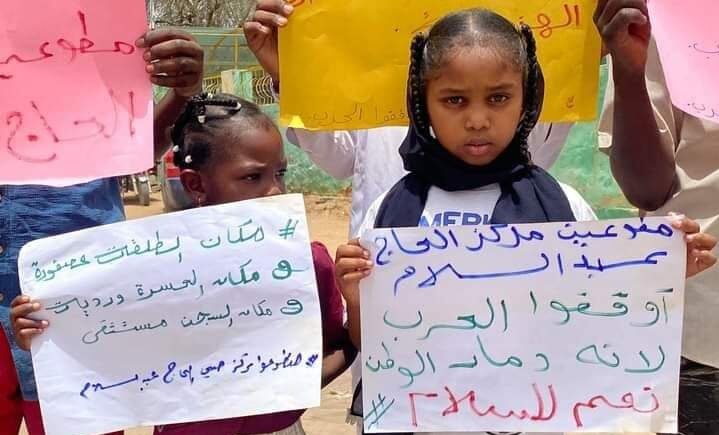
Decline in growth potential:
El Badawi says that the most dangerous thing in the current situation is the complete destruction of the Sudanese economy. He adds that the matter is not limited to infrastructure but also includes the destruction of the factors of production that represent the levers of the economy and the extent of its growth and development. In this regard, he explains that the production infrastructure, including supply chains, has completely collapsed.
He says that Sudan’s education and labour sector has also been greatly affected by the war, “where an entire generation of youth and children has become displaced, suffering from hunger and epidemics, at a time when the world – even in Africa – is witnessing advanced digital transformations, such as the use of artificial intelligence in education as is the case in Kenya and other neighbouring Arab countries.” This puts Sudan in the dilemma of having an uneducated workforce, which hinders its future growth potential, he says.
El Badawi points out that the educated and trained workforce, whether in universities, hospitals, or other vital sectors, “has been displaced out of Sudan, and a large part of it will never return to the country.”
El Badawi stresses that the bill for the rehabilitation of human cadres will be exorbitant, as the Sudanese economy needs more than a decade to rebuild its human resources and the infrastructure necessary for growth. He points out that any economy, needs labour, educated, and qualified, which has been severely damaged as a result of the war.
Missed opportunities:
Regarding the deterioration of the Sudanese pound, El Badawi considers that today’s exchange rate clearly reflects the size of the economic collapse. He explains that the halt in exports and the decline in production made the demand for foreign exchange much higher than the supply, which led to crazy jumps in the price of the dollar against the pound, which reached more than SDG 3,500.
He points out that this collapse is comparable to before the war, where the transitional government had succeeded in unifying the exchange rate, preparing Sudan to forgive its debts, and engage in the international financial community.
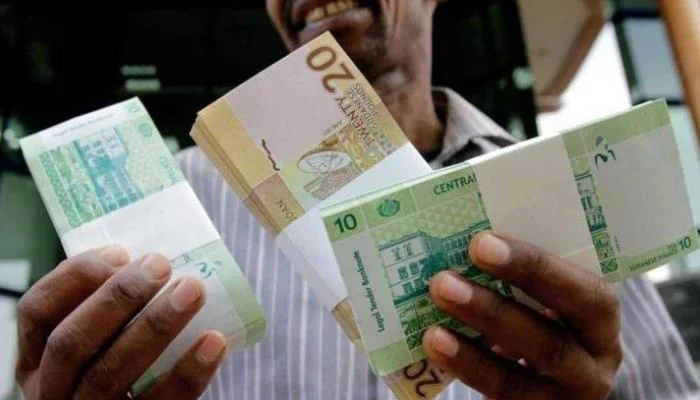
From Revolution to Isolation:
On the experience of the “glorious December Revolution”. El Badawi says that it was an important lever for the world’s attention, “that there are people and young people who have made great sacrifices to get rid of a dictatorial regime that combined corruption and tyranny, which helped Sudan to return to the “international development community.”
Badawi laments that Sudan then had a historic opportunity to forgive its debt, which amounted to more than $60 billion, equivalent to one-third of the total debt of heavily indebted poor countries since the establishment of the program in 1996.
He points out that these efforts “almost bore fruit, as Sudan would have received direct budget support exceeding $1 billion annually as a non-refundable grant, in addition to debt forgiveness and expected investment flows, especially in the agricultural sector.”
El Badawi stresses that this opportunity has become more difficult today, due to the complex international situation, including the Gaza tragedy and the war in Ukraine, which makes the rehabilitation of infrastructure, and meeting the huge humanitarian needs in Sudan, difficult, and requires great effort and strong international will.
Military control and political deadlock
Regarding how the situation in Sudan is now viewed, after the Quartet countries put forward an initiative for peace in Sudan, El Badawi says that Sudan is now living under the absolute domination of the military elite, which he describes as the militia that controls the country, in light of the weakness of the democratic civil forces that were forced to work from abroad during the past period. He considers that dismantling this hegemony and creating a new balance in the balance of power will not be possible without external support, calling on the civil forces to have a binding national charter that defines practical and implementable programs, and is based on international initiatives but from a position of independence.
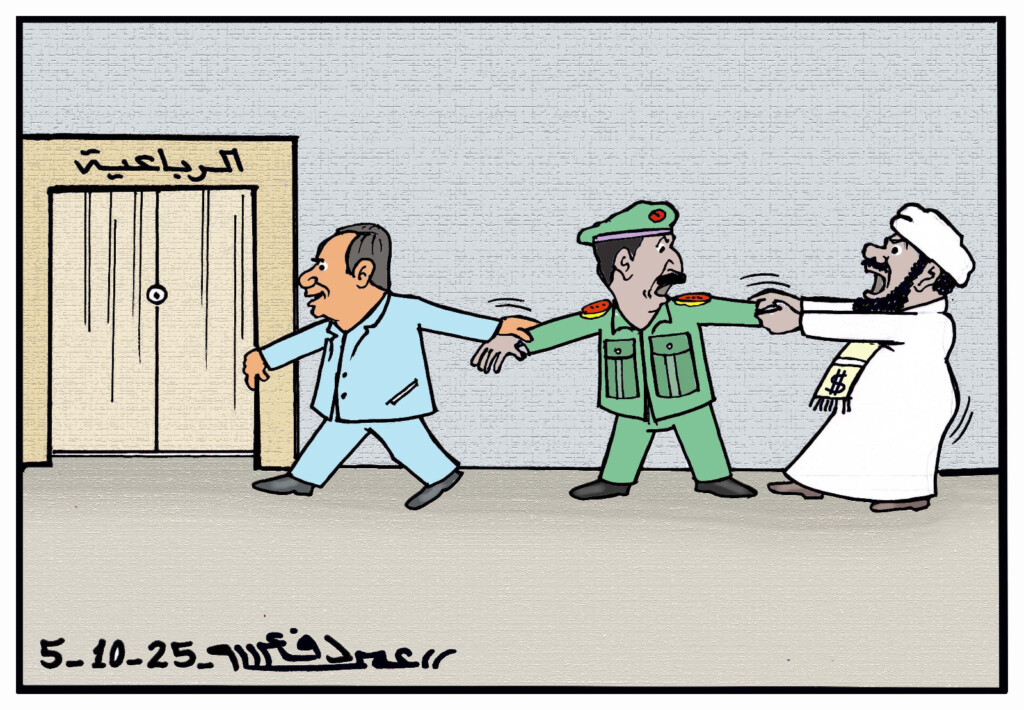
The Quartet Initiative is a qualitative leap
El Badawi stops at the quadrilateral initiative put forward by the United States, Saudi Arabia, the United Arab Emirates and Egypt last September, describing it as a qualitative leap compared to previous initiatives, because it was not limited to a humanitarian truce and a ceasefire, which he calls a negative peace, but also went further towards a comprehensive political process leading to civilian rule.
He explains that the initiative clearly identified the parties responsible for igniting the war, represented by the Islamic Movement, which insists on the continuation of the war, calling for its legal isolation through transitional justice and accountability for those involved in igniting the conflict. He adds that comprehensive security reform, along with transitional justice, are the basis for controlling the relationship between civil and military forces and ending the militarisation of politics and economy, which he says represent the root of the scourge that has plagued the country and the foundations of the Sudanese syndrome compared to all the countries around us. He calls on the civil forces to seize it as a lever for the national project instead of just waiting.
The responsibility of civil forces – between success and failure
El Badawi believes that the Quartet initiative can succeed in ending the war and achieving a democratic transition, if “the civil forces overcome their partisan and regional differences, and agree on a minimum charter that is clearly declared.” “If we do that, the fighting can stop and the military can be rehabilitated according to international standards that ensure that it is under the control of the elected civilian administration,” he says. In the absence of such a consensus, al-Badawi expected that the countries sponsoring the initiative would resort to what he describes as the easiest solution, by reformulating the al-Burhan and Hemedti dichotomy, similar to the Juba Agreement, which would reproduce the crisis and maintain the militarisation of the economy and politics.
El Badawi points out that the war has deepened divisions within Sudan politically, socially, and even within political parties. He considers that the continuation of the civilian forces in “relegation within narrow partisan positions will give the military forces and regional countries an opportunity to impose fragile compromises, which are no different from previous experiences.” However, he stresses that the vast majority of the Sudanese people are not with the army or the Rapid Support Forces, but are looking for a democratic civilian alternative, calling on the major political forces to call for a national peace conference or a constitutional conference, including those who attended, and come up with a clear program, which includes security reform, transitional justice, and the economic program.
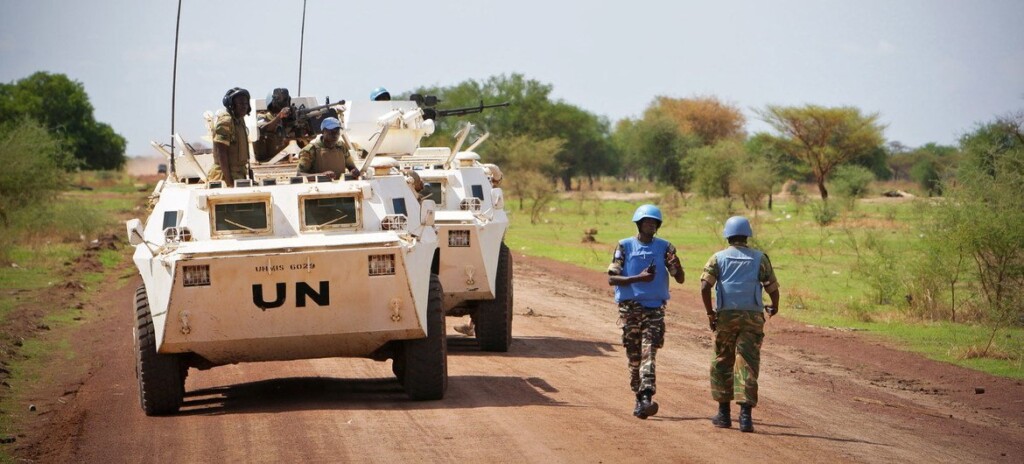
The third side of peace
According to El Badawi, the United Nations can be a pivotal partner for the civilian forces, by virtue of its long experience in security reform and transitional justice, stressing that it can represent a bulwark against the narrow agendas of the Sudanese elites and neighbouring countries. He says that any successful peacebuilding process needs three sides, represented by the national capabilities of the state, which is currently devastated in Sudan, and the cohesion of the social fabric, which is also in a state of collapse, according to El Badawi, in addition to external UN support that strengthens internal efforts.
Major challenges for the quartet
In response to a question about whether the international Quartet initiative will end the war and adjust the balance of power in favour of the project of a peaceful democratic transition?
El Badawi says that “this can happen if the civil democratic forces have shouldered the historical responsibility that they are facing now, and have decided to transcend all the positions that are entrenched in the parties and visions, and agree on a minimum project,” he adds, “I think that this is a sensitive stage; we all have to come up with a clear charter on an agreed national government and an agreed program during the transitional period, in which everyone participates.” At the same time, El Badawi considered that “ the Islamic Movement, which is allied with the military establishment, represents a major challenge to the initiative, in addition to the risk that the sponsoring countries or the international community will resort to what he describes as easy solutions, if they do not find a unified civilian party.” He stresses that the Quartet’s proposals for the rehabilitation of the armed forces and the exit of the current leadership from the scene are major slogans that need organised civilian pressure to translate them into reality.
Future scenarios
El Badawi put forward four possible scenarios for the future of Sudan, the best of which for him is a full civil democratic transition under the roof of a national project. The second scenario is a (civilian-military) partnership similar to the framework agreement, which is a temporary solution but carries the seeds of future coups, and the third scenario is the division of Sudan into two state entities in western Sudan and another in central, eastern and northern Sudan within a fragile confederation. The worst-case scenario is that the war will continue, and Sudan will be completely disintegrated, with international and regional intervention cutting off parts of its territory.
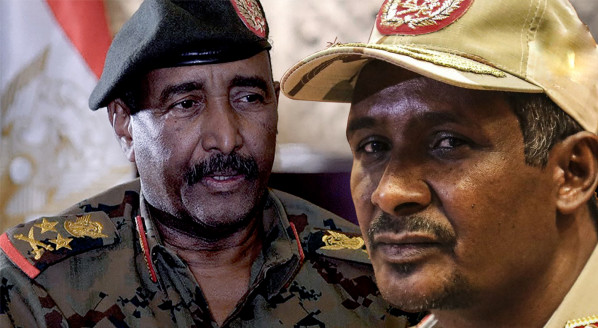
Mutual weakening of legitimacy
Regarding the presence of two governments in Port Sudan and Nyala, Badawi said that this may complicate the scene, but at the same time weakens the legitimacy of each party, which may facilitate the task of the Quartet, as “neither government can claim to represent Sudan.” He adds: “ The issue is a kind of mutual weakening of legitimacy, and therefore it may facilitate the task of the Quartet, because Sudan at the moment lacks legitimacy, as the government of Port Sudan cannot say that it represents Sudan, nor the government of Nyala as well, and this has been positive to some extent in terms of the fact that there is no legitimacy for any party.”
Messages to both warring parties
El Badawi sent a direct message to El Burhan and Hemedti, saying that the war is “not victorious” and that even those who think themselves victorious are defeated. “They must fear God in their people who are being displaced, killed and sick, and come out of the scene with dignity, leaving the country for future generations to be governed by an accountable civilian government,” he said.
El Badawi concludes that the only way out of Sudan’s existential crisis is the agreement of the civil forces on an inclusive national charter, which enjoys the support of the Quartet and the United Nations, and guarantees security reform and real transitional justice, while ending the militarisation of politics and the economy. The other alternatives are a return to military bilateralism or the division of the country, according to al-Badawi, which means simply postponing the crisis or the irreversible disintegration of Sudan.







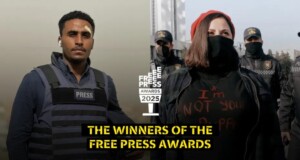
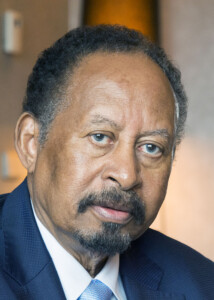


 and then
and then